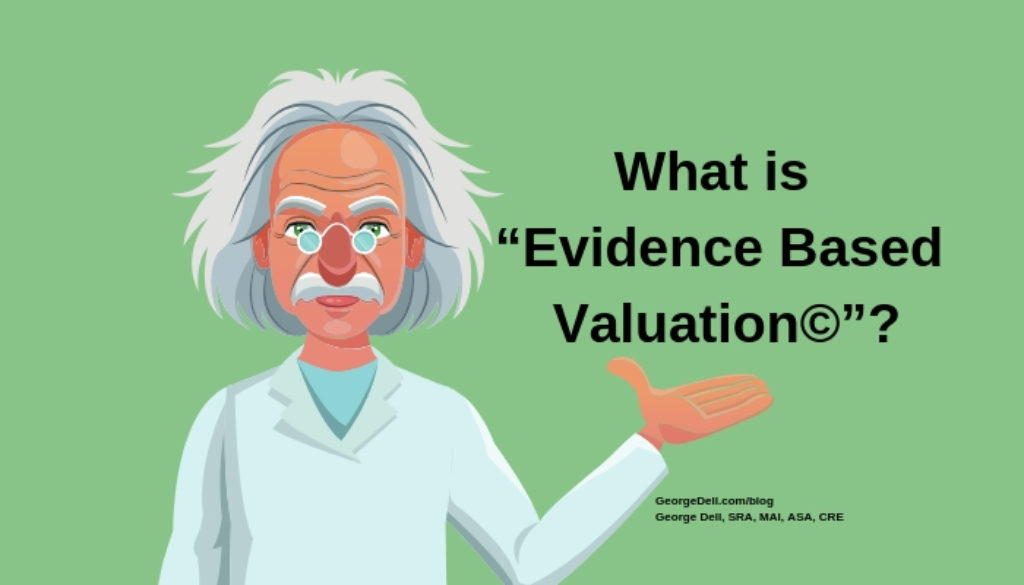Simple. It’s valuation based on evidence, not belief or “good judgment.”
What is “evidence”? Evidence can be anecdotal, empirical, or logical.
Logical evidence is the easiest, and strongest. If A, then B must follow. We only need to agree that A is a fact, or is true, or as an assumption. Generally, there is no uncertainty about B, given A.
Empirical evidence requires a bit more. It requires scientific research. The focus is on objective data selection and objective analysis. This means three things:
1) the problem is correctly defined;
2) the relevant data set (the competitive market segment) and predictor variables (elements of comparison”) are isolated; and,
3) the appropriate model analysis is performed.
Anecdotal evidence is evidence based on personal experience. Anecdotes are brief stories or comparisons that serve to support the opinion from experience. The focus is personal objectivity and good judgment in data selection (e.g., comparables, elements of comparison), and good judgment in comparisons. Perhaps three or four “personal experiences” support the opinion.
Logical evidence is certain given the facts and assumptions.
Empirical evidence has uncertainty – but the degree of uncertainty can be measured or scored. The scientific research must be reproducible.
Anecdotal evidence has uncertain uncertainty, because the data is subjectively selected. Anecdotes and stories are not reproducible. There is no attempt to show the “sureness” (precision) in the result – the opinion.
So, what is “Evidence Based Appraisal©”? It’s Empirical. The data and predictors are identified through classification tools and algorithms, not personal “trust my judgment” selection. Objective analysis flows through from objective data selection. What’s important is that the inherent variability is measured or estimated. This estimate of variability is a necessary part of reliability.
Reliability is, in turn, based on trueness, sureness, and appropriateness of the chosen model or algorithm or calculation. Reliability automatically qualified credibility. However, credibility (believability) does not guarantee (or even try to show) reliability.
Clearly, for a reliable result, the analysis (or appraisal) must be based on “relevant evidence and logic.” And the logic and evidence start with the selection of data. Not later on.
Having said all this, I recognize that there always remains some variability. There is variation in the data, in data collection, in choice of models, and in interpretation. This is important. The human expert role will remain. It will change. But someone with the subject-matter expertise of an appraiser will continue to be necessary for a long time. What is now necessary is for appraisers to understand and use modern analytic technology. If we don’t do it, others will. If I don’t do it, others are learning and doing – step by step.
Evidence Based Valuation is the result of the science of data applied to valuation and risk analysis and management. The result is an opportunity for appraisers, for our professional organizations, and for the public good. “Trust me” is the past. “Show your work” is today and the future.
